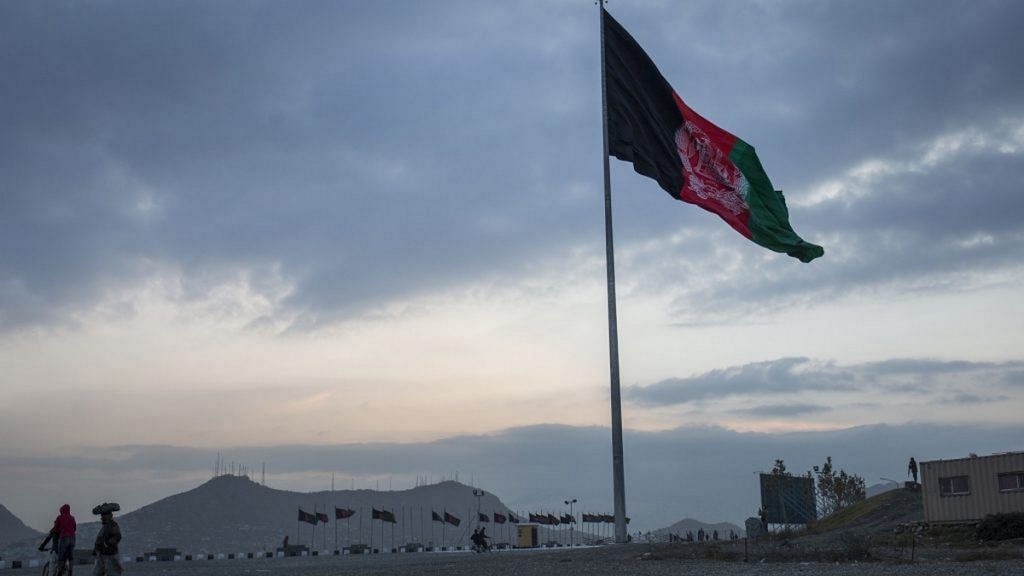New Delhi: India may not reopen its embassy in Kabul anytime soon, though it will maintain people-to-people linkages with Afghanistan, by having communication channels with the top echelons of the Taliban opened, ThePrint has learnt.
While the Narendra Modi government has established a high-level group focused on Afghanistan, which includes National Security Advisor Ajit Doval and External Affairs Minister S. Jaishankar, the country will not have any kind of “physical presence” there, top sources told ThePrint.
However, India does plan to continue receiving Afghan students and others who come for medical reasons as soon as commercial flights resume between Delhi and Kabul, and after all evacuation is done, sources said.
But New Delhi will not officially recognise the Taliban government, which is expected to be formed soon, and thus, neither side will be able to appoint their envoys to each other’s capitals.
According to sources, as many as 100-150 Indian nationals continue to remain stuck in Afghanistan, and they are mostly in the provinces. The majority who were in Kabul have been evacuated.
India has also not yet started giving e-visas, after invalidating all visas in August within days of the Taliban taking over Kabul.
Sources said India will start distributing e-visas as soon as international flight operations resume in Afghanistan. Meanwhile, those who are already present in India and came here for medical treatment are now applying for visas to the Pakistan High Commission, in order to travel to Afghanistan via that country.
On Monday, addressing a press conference in Kabul, Taliban spokesperson Zabiullah Mujahid said international flights will resume soon.
Also read: India talks to Taliban leader Stanikzai for ‘early return’ of those stuck in Afghanistan
ISI chief’s presence ‘cause of concern’
While India is planning to have a dialogue with the Taliban so that free movement of people can be maintained, New Delhi believes the presence of Pakistan’s ISI head Faiz Hameed in Kabul just days before the government is formed is a “cause of concern” and “sign of things to come”, sources said.
During his visit to Kabul last week, Hameed met all Taliban leaders, including Mullah Baradar.
India, sources said, has also sought assistance from Qatar and Russia to keep the communication channels open with the Taliban.
On Sunday, the United Nations under-secretary-general for humanitarian affairs Martin Griffiths met with Taliban leader Mullah Baradar, and said he will continue to support Afghanistan and extend cooperation in this crisis.
On the same day, UN Secretary-General Antonio Guterres also said that the forum of nations has decided to convene an international aid conference on 13 September “to advocate for a swift scale-up in funding and full, unimpeded access to those in need”.
Sources said the Taliban will be forming an interim or a caretaker government for the time being, as a struggle for power has emerged between it and the Haqqani Network. Apparently, Sirajuddin Haqqani — elder son of Haqqani Network founder Jalaluddin Haqqani — is now keen to have a larger role in the new government while his younger brother Anas Haqqani has already been made the head of Kabul’s security.
Taliban want India aid to continue
India was one of the rare countries that had presence in some of the key provinces of Afghanistan, which helped New Delhi garner security and intelligence inputs. It had four consulates in Jalalabad, Herat, Kandahar and Mazar-i-Sharif that were regarded as ‘assets’, as they helped gather intelligence of Pakistan’s presence and activities in those regions.
However, just after the Taliban and the US signed the peace deal in February 2020, India shut down its consulates in Jalalabad and Herat. While the government said the step was taken due to the ongoing Covid pandemic, the main reason was the deteriorating security situation.
On 11 July 2021, India shut down its consulate in Kandahar, the birthplace of the Taliban, and on 10 August, just five days before Taliban took control of Kabul, the Indian consulate in Mazar-i-Sharif also closed down. The main embassy in Kabul pulled its shutters down on 16 August, and the entire diplomatic staff came back to New Delhi.
A former official of the intelligence agency RAW, who was posted in Kandahar, told ThePrint requesting anonymity: “The lack of physical presence in Afghanistan may prove to be counterproductive for India as far as building our intelligence network is concerned. Through these consulates, India was able to keep an eye on Pakistan and its nefarious activities. But now all that will be gone and our security will be seriously jeopardised.”
India had invested in several projects in Afghanistan in the last 20 years since the war with America was on. The country has investment upwards of $3 billion in the war-torn country, with some of main projects including construction of the Salma Dam, also known as the Afghan-India friendship dam; the Afghan Parliament in Kabul; Zaranj-Delaram highway and restoration of Stor Palace, among others.
(Edited by Shreyas Sharma)
Also read: India is adjusting to the new ground reality in Kabul, coming to terms with Naya Afghanistan
